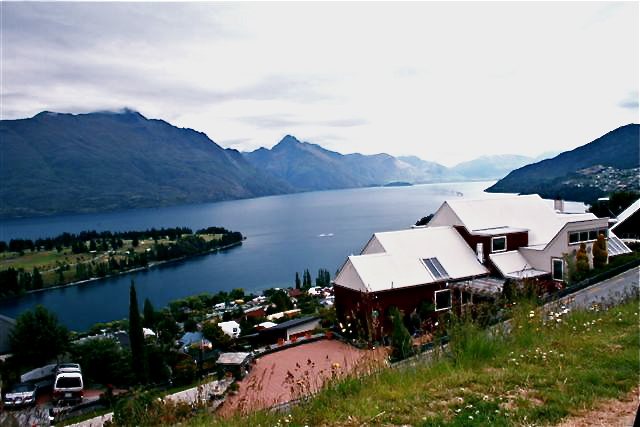New Zealand is the most socially advanced nation in the world according to a global index published by US-based nonprofit, the Social Progress Imperative, and released at the 2014 Skoll World Forum on Social Entrepreneurship.
New Zealand topped the rankings across a wide range of measures–according to the Social Progress Index 2014 which ranks 132 countries based on their social and environmental performance. The result was described as “exceptional†by Michael Green, Executive Directive of the Social Progress Imperative.
The Social Progress Index, created by a team led by Professor Michael E. Porter of Harvard Business School, is designed as a complement to GDP and other economic indicators to provide a more holistic understanding of countries’ overall performance.
What is social progress?
Social progress is defined as the capacity of a society to meet the basic human needs of its citizens, establish the building blocks that allow citizens to improve their lives, and create the conditions for individuals and communities to meet their full potential.
Measuring a country’s social progress outcomes the Index identifies a number of areas in which New Zealand is performing strongly compared to countries with a comparable GDP per capita, including on ‘Personal Rights’, ‘Water and Sanitation’ and ‘Personal Freedom and Choice’.
Until now, the assumption has been that there is a direct relationship between economic growth and wellbeing, says Professor Michael E. Porter.
“However, the Social Progress Index finds that all economic growth is not equal. While higher GDP per capita is correlated with social progress, the connection is far from automatic. For similar levels of GDP, we find that some countries, like New Zealand, achieve much higher levels of social progress than others.”
It’s some accolade that across so many measures New Zealand outperforms countries like the United States, UK and Australia, says
Michael Green, Executive Director of the Social Progress Imperative.
“It’s particularly on the measure of ‘Opportunity’ that New Zealand performs strongly thanks to it’s top global rankings on ‘Personal Rights’ and ‘Personal Freedom and Choice’.”
The Social Progress Imperative created the Social Progress Index working in collaboration with scholars from the Harvard Business School and the Massachusetts Institute of Technology (MIT), as well as international organizations in social entrepreneurship, business and philanthropy led by the Skoll Foundation and Fundacion Avina as well as Cisco, Compartamos Banco, Deloitte Global and its member firms (Deloitte).
The result is particularly impressive in the context of New Zealand’s relative economic weakness compared to countries that finished much lower on the Index. New Zealand enjoys the world’s 25th highest GDP per capita of $25,857, finishing ahead of the United States in 16th ranking with a per capita GDP of over $45,000*; the UK in 13th with a per capita GDP of over $32,500*; and Australia in 10th with a per capita GDP of $34,669*.
Key global highlights:
- The top five countries in order of ranking are: New Zealand, Switzerland, Netherlands, Iceland, and Norway.
- Canada is the best performing G8 country.
- Brazil is the top of the BRICS, followed by South Africa, Russia, China and India. Apart from Brazil, the BRICS are all significant under-performers on social progress, suggesting that, for China and India in particular, rapid economic growth is not yet being converted into better lives for their citizens.
Key New Zealand findings:
Of the 54 indicators measured within each country to make up the overall Index ranking, New Zealand scores top spot in no less than 20, across a wide variety of different measures. These include tying in first place globally on measures of homicide (less than 2 per 100,000 people); levels of corruption and religious tolerance.
Strengths:
New Zealand scores strongly on the ‘Access to Basic Knowledge’ component finishing 2nd globally. Included in this is secondary school enrollment on which New Zealand scores top.
New Zealand also finishes top ranked on ‘Personal Freedom and Choice’, owing to impressive results on religious freedoms and freedom over life choices.
On ‘Tolerance and Inclusion’ New Zealand scores fourth globally, thanks partly to its high tolerance for immigrants and religious tolerance.
On the ‘Access to Information and Communications’ measure New Zealand scores 7th globally, which is a relatively strong result compared to countries of a similar GDP. The result owes partly to an exceptionally high rate of mobile telephone subscriptions (more than 110 for every 100 people) as well as ranking number one globally for press freedoms.
Other findings
According to the researchers New Zealand doesn’t have any specific weaknesses. However, the Social Progress Index 2014 highlights obesity as a challenge to ‘Health and Wellness’ – more than one in four New Zealanders are obese.
Also, one of New Zealand’s weaker score is on ‘Nutrition and Basic Medical Care’ (28th), a result partly of its 36th place ranking on the measure of maternal mortality (15 deaths per 100,000 live births). The top ranking country on this measure is Estonia with just two deaths per 100,000 births. Similarly, New Zealand’s child mortality rate of 5.7 deaths per 1000 live births is more than double Iceland who ranked in first place with just 2 deaths per 1000 live births.
Sally Osberg, President and CEO of the Skoll Foundation, said: “Making social progress a true imperative means putting the progress of humanity and our wellbeing on an equal footing with GDP. The Social Progress Index prioritizes and measures what matters, capturing data that ranges from basic needs such as health to the building blocks and guarantees of opportunity such as education and rights.

Leave a Reply